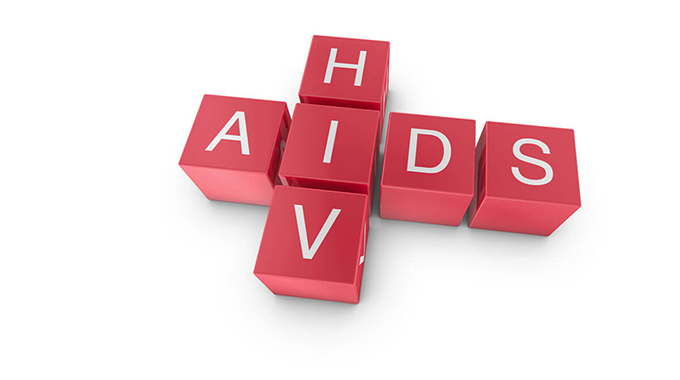HIV and mental health: Let us move from surviving to thriving

Chido Madzvamutse
Mental Wellness
As discussed in previous articles, mental health is defined as a state of well-being in which an individual realises his or her own potential, can cope with the normal stresses of life, can work productively and fruitfully, and is able to make a meaningful contribution to their community.
Once a life-threatening illness, HIV has now become a manageable, chronic condition with effective treatment now readily available.
Life expectancy for someone with HIV is now close to normal, however, their quality of life can be affected by poor mental health.
It is important to take care of one’s mental well-being as a person living with HIV so that one does not just survive, but to thrive.
How does HIV affect mental health?
While certain mental health conditions like depression and anxiety are common in many communities, people living with HIV are at a higher risk of depression, anxiety, post-traumatic stress disorder and substance use problems.
This vulnerability to getting common mental health problems for people living with HIV is due to certain factors including:
The impact of HIV on the brain: HIV causes irritation and inflammation of the brain and this can put one at risk of depression, anxiety and cognitive problems, especially when the HIV disease is not well-managed.
Chronic stress: the diagnosis of HIV, initiation on treatment, need for chronic medication, coping with medication side effects are all stress triggers that one can face while living with the virus.
These stress triggers can increase the risk of developing anxiety or depression and poor coping habits seen in alcohol and substance misuse, particularly for people living with HIV that may have poor support systems to help them cope better.
Stigma: we have come a long way from the earlier days of HIV when fear about the nature of the illness and lack of understanding about how it was transmitted fuelled much stigma and discrimination for people living with HIV. However, some stigma still remains concerning HIV and this can negatively impact mental well-being.
Sadly, self-stigma also still exists as one can feel “less than” and look down on oneself because they are living with HIV.
Self-stigma can feed low self-esteem and low self-worth. Stigma is often linked to a lack of knowledge and understanding. With better awareness and understanding about HIV, we are better equipped to deal with the virus and less likely to stigmatise others and ourselves.
Common mental health problems that may occur in people living with HIV include:
Depression: studies show that people living with HIV can be twice as likely to become depressed than those without HIV. Depression is a mood disorder characterised by low or irritable mood, fatigue, loss of motivation and drive, changes in appetite and sleep patterns, difficulties with concentration and focus, feelings of helplessness or hopelessness, low self esteem and at its worst thoughts of dying and suicide.
Anxiety: studies also show that people living with HIV can be eight times as likely to struggle with anxiety than those without HIV. Anxiety is characterised by feelings of excessive fear and worry that can be chronic and continuous as it is in Generalised Anxiety Disorder or brief and intense as it is in Panic Disorder.
Bipolar Disorder: HIV can cause brain chemistry changes that can put some people at risk of developing Bipolar Disorder particularly manic symptoms. Bipolar Disorder is a mood disorder characterised by extreme shifts in mood with periods of elevated mood (mania or hypomania) and periods of low mood. The mood changes are also associated with fluctuations in energy levels, ability to focus and concentrate and ability to function at home and at work or school.
Post Traumatic Stress Disorder: traumatic events can result in re-experiencing the trauma, avoiding any reminders of the trauma and a heightened level of anxiety. Stress and traumatic life experiences have been shown in studies to negatively affect adherence to HIV medication and treatment outcomes.
Alcohol and substance misuse: use of alcohol and addictive substances can be used as a maladaptive coping strategy to cope with physical and psychological problems that may come with HIV. Use of alcohol and substances may start off experimentally but can sadly develop into dependency or addiction characterised by compulsive, excessive use of alcohol or a substance despite physical, emotional or social challenges as a result of the substance use as well as development of withdrawal symptoms when attempting to stop the use of the substance.
How does mental health influence HIV?
Mental health conditions can influence the ability to prevent HIV transmission and the ability to cope with and HIV diagnosis and treatment demands.
Alcohol and substance misuse is linked to impulsive behaviour, including risky sexual behaviour that can increase the risk of acquiring HIV.
Injectable drug abuse particularly can directly increase risk of getting HIV through needle contamination. Anxiety can result in excessive health related worries which can interfere with HIV treatment as well as with healthy coping with life with the illness.
Depression can affect ability to focus and concentrate as well as energy levels and motivation and all these factors can affect adherence to HIV medication. Unfortunately, poor adherence can lead to drug resistance and treatment failure.
How can I better manage my mental health while living with HIV?
Living with HIV can be challenging and stressful but it is very possible to live a fulfilling life and to thrive. It can help to:
Be emotionally aware and be willing to be vulnerable and open up to trusted people when facing emotional challenges.
Managing one’s own thoughts is critical in fighting self-stigma and other negative thoughts.
Building and maintaining strong positive relationships is critical to forming a support network to help navigate the challenges life brings us.
Safeguard physical health through eating a healthy diet, exercising regularly and taking HIV medication as instructed.
Living with a sense of hope and a sense of purpose. Hope is protective to the mind and is critical to maintain a positive perspective and living life with a sense of purpose and meaning which is needed for mental well-being.
Antiretroviral therapy and advancements in HIV care have transformed life for people living with the illness giving those affected a chance to live a normal healthy life. However, challenges with mental health can compromise quality of life. It is, therefore, important to make one’s mental health a priority as one lives with HIV.
If you think that you or someone you know may be struggling with mental health problems linked to HIV status, please contact your nearest health care provider and get help.
l Association of Health Care Funders of Zimbabwe (AHFoZ) article written by Dr Chido Rwafa- Madzvamutse, Consultant Psychiatrist. Feedback +263714987729; www.ahfoz.org; [email protected]









Comments